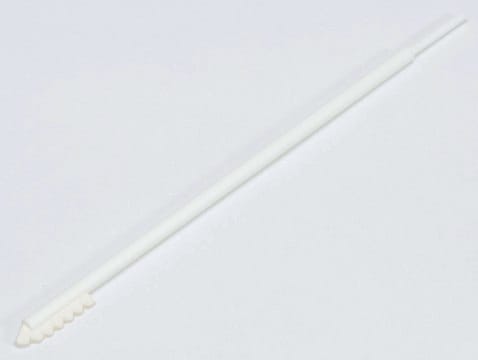Z699446
Swabs and SwabChecks
Hygiene SwabCheck
Sinónimos:
swab kit, swab kits, swabs
Iniciar sesiónpara Ver la Fijación de precios por contrato y de la organización
About This Item
UNSPSC Code:
41111700
NACRES:
NB.79
Productos recomendados
feature
Hygiene SwabCheck
packaging
pkg of 25 ea
manufacturer/tradename
Maine Mfg 10498407
application(s)
environmental
food and beverages
suitability
bacteria
¿Está buscando productos similares? Visita Guía de comparación de productos
General description
Hygiene SwabCheck
Easy to use: The Hygiene SwabCheck shows an obvious color change from red to yellow. The time taken for this change is an indication of the level of contamination. This should be used in conjunction with known specification levels of your process/product. Rapid screening hygiene test is a same day test that will detect gross bacterial and fungal contamination of work surfaces, equipment machinery or other sampling sites.
Easy to use: The Hygiene SwabCheck shows an obvious color change from red to yellow. The time taken for this change is an indication of the level of contamination. This should be used in conjunction with known specification levels of your process/product. Rapid screening hygiene test is a same day test that will detect gross bacterial and fungal contamination of work surfaces, equipment machinery or other sampling sites.
The SwabCheck principle
The surface is wiped with a cellulose swab and any bacteria collected are transferred via the swab into a tube containing a special medium with an indicator dye, which is then incubated. A single bacterium is sufficient to cause a color change. This means that SwabCheck is about 1000 times more sensitive than the conventional ATP method. This accuracy is particularly important in the food industry. With this simple method, it is possible to identify microorganisms such as Listeria monocytogenes, which must not be present in any concentration in food and beverages.
Features and Benefits
Handling is easy. Open the sterile pack, remove the swab and wipe it over an area of about 10 x 10 cm. Then twist off the cap of the medium tube and insert the swab so that the cap fits tightly. Label the sample tube and incubate at the appropriate temperature.
A change in color indicates the presence of the microorganism in question. The quicker the color change occurs, the higher the bioburden. If no color change has been observed after the maximum incubation period has elapsed, then the corresponding microorganism is not present.GVS offers SwabCheck in packs of 25 pieces. Shelf-life of 12 months.
The surface is wiped with a cellulose swab and any bacteria collected are transferred via the swab into a tube containing a special medium with an indicator dye, which is then incubated. A single bacterium is sufficient to cause a color change. This means that SwabCheck is about 1000 times more sensitive than the conventional ATP method. This accuracy is particularly important in the food industry. With this simple method, it is possible to identify microorganisms such as Listeria monocytogenes, which must not be present in any concentration in food and beverages.
Features and Benefits
- The right test for each type of contamination
- Qualitative and semi-quantitative hygiene control
- Sterile packed and ready-for-use
- Easy to handle
- Rapid results
- Long shelf-life
- SwabCheck use
Handling is easy. Open the sterile pack, remove the swab and wipe it over an area of about 10 x 10 cm. Then twist off the cap of the medium tube and insert the swab so that the cap fits tightly. Label the sample tube and incubate at the appropriate temperature.
A change in color indicates the presence of the microorganism in question. The quicker the color change occurs, the higher the bioburden. If no color change has been observed after the maximum incubation period has elapsed, then the corresponding microorganism is not present.GVS offers SwabCheck in packs of 25 pieces. Shelf-life of 12 months.
Other Notes
Field of Use : For internal research use only. Products are not intended for diagnostic use or resale.
Certificados de análisis (COA)
Busque Certificados de análisis (COA) introduciendo el número de lote del producto. Los números de lote se encuentran en la etiqueta del producto después de las palabras «Lot» o «Batch»
¿Ya tiene este producto?
Encuentre la documentación para los productos que ha comprado recientemente en la Biblioteca de documentos.
Los clientes también vieron
Nuestro equipo de científicos tiene experiencia en todas las áreas de investigación: Ciencias de la vida, Ciencia de los materiales, Síntesis química, Cromatografía, Analítica y muchas otras.
Póngase en contacto con el Servicio técnico











